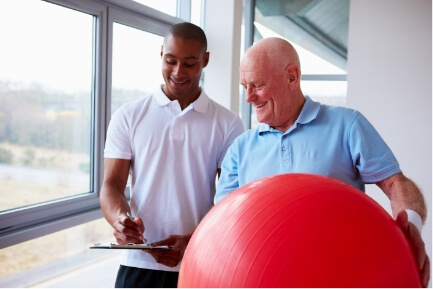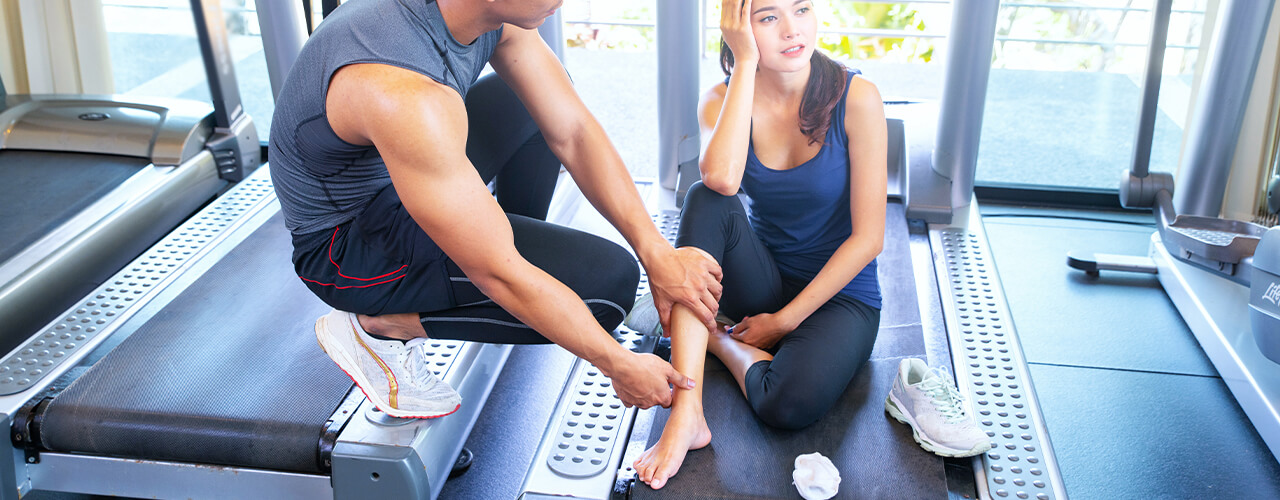Hip pain while walking can occur for a variety of reasons. Pain in the hip joint can occur at any age.
The location of the pain, along with other symptoms and health information, assists your doctor in diagnosing the cause and prescribing the appropriate treatments.
The following are the most common causes of hip pain while walking or running:
- Arthritis types
- injuries and property damage
- problems with the nerves
- problems with alignment
Causes of hip pain when walking
Arthritis
Hip pain can be caused by arthritis at any age. Old hip injuries may increase the risk of arthritis later in life. According to research, professional athletes who participate in high-impact sports are more likely to develop hip and knee arthritis.
According to one study, more than 14% of people aged 60 and up experienced severe hip pain. The most common cause of hip pain when walking in older adults is arthritis in or around the joint.
There are several kinds of arthritis that can lead to hip pain when walking. These include:
- Juvenile idiopathic. This is the most common type of arthritis in children.
- Osteoarthritis. This condition is due to wear and tear on the joints.
- Rheumatoid arthritis. This autoimmune disease causes arthritis in the joints.
- Ankylosing spondylitis. This type of arthritis mainly affects the spine.
- Psoriatic arthritis. This type of arthritis affects the joints and skin.
- Septic arthritis. This arthritis is caused by an infection in the joint.
Injury, damage, inflammation, and disease
Walking can be painful if the hip joint has been injured or damaged. An injury to the hip and its surrounding areas, such as the knee, can damage or cause inflammation in the hip joint’s bones, ligaments, or tendons.
Muscle or tendon conditions
- Bursitis. Inflammation in the fluid-filled “ball bearings” around the hip joint causes this condition.
- Sprain or strain These conditions develop as a result of overuse of the muscles and ligaments in the hips and legs.
- Tendinitis. The tendons that connect hip muscles to bones are damaged or irritated, resulting in this condition.
- Tear in the hip labrum. The labrum, also known as the cartilage ring socket, holds the hip bone in place.
- Toxic synovitis. This is a joint inflammatory condition that causes hip pain in children.
- Hernia inguinale. The pain is caused by a weakness or tear in the lower stomach wall.
Injuries or damage to the hip bones can lead to pain when walking. This includes cancer that has spread from another area of the body.
Bone conditions
- Fractured or broken hip
- Dislocation. This occurs when the top of the thigh (leg) bone slips partly or fully out the socket joint.
- Osteoporosis. This condition causes weak or brittle bones in the hip and other areas, it usually occurs in older adults.
- Osteomyelitis. This is a bone infection in or around the hip.
- Bone Cancer
- Leukemia. This is a blood cell or bone marrow cancer.
- Legg-Calve-Perthes disease. This disease occurs in children where the thigh bone doesn’t get enough blood.
- Avascular necrosis or osteonecrosis. This disease stops or limits blood flow temporarily to the head of the femur of the hip and other bones.
Nerve issues or damage
Nerve problems in or close to the hip joint can also cause pain when walking. Pinched or damaged nerves in the back can lead to nerve pain in the hip.
- Sciatica. A pinched nerve in the lower back can cause hip and leg pain.
- Sacroiliitis. Nerve damage due to inflammation where the spine joins the pelvis bone can also cause pain.
- Meralgia paresthetica. Nerve irritation in the outer thigh can be due to obesity, tight clothing, or too much standing or exercise.
How can you prevent hip pain when walking?
Simple exercises can often improve the condition of your hips before or after these degenerative changes occur.
- Simple stretching can help you maintain or improve your hip flexibility.
- Muscle strength around the hip should be maintained or improved.
- Increase your abdominal (tummy) muscle strength.
- Maintain/improve spinal flexibility through regular exercise such as Pilates or Yoga (classes are held here) or simple home exercises.
- Balance training – this will help to reduce excessive wobble during hip exercises.
Keep in mind to:
- Vary your workouts, especially if you do a lot of the same type (e.g. running or tennis)
- Incorporate low-impact strengthening exercises such as swimming, cycling, and Pilates into your routine.
If you have hip pain while walking, you should also consider:
- Maintaining a healthy weight
- Wearing supportive shoes or purchasing insoles to maintain proper foot position
- If you enjoy long walks, consider using walking poles.
- At night, try sleeping with a pillow between your knees.
- Remember that even if you have been diagnosed with hip arthritis or degeneration, you can still improve with the right types of exercise.
Are You Looking for Relief for Your Hip and Knee Pain?
Pace Physical Therapy in San Jose, California specializes in non-surgical relief and recovery therapies for injuries. Our physical therapists in San Jose, CA are movement professionals who can help you heal easily and accomplish your physical goals. Do your knees feel sore, or do they feel as if, without warning, they could buckle under you? Do sharp hip pains find it hard to get up in the morning, walk about during the day, and lay down at night? Hip joint pain and knee pain, especially if you’re dealing with both, can seriously interfere with your life. Whatever could be uncomfortable for you, physical therapy may help you get safely and easily to the source of your problem without the need for harmful drugs or surgery. To alleviate your hip and knee pain entirely, make an appointment with Pace Physical Therapy in San Jose, CA, saving you the need for potentially harmful medicine or surgical correction. We strive every day to provide excellent service for all our patients because we understand it can be frustrating not being able to do what you love most due to an injury keeping us off the field or court! Contact us today to schedule your appointment!



